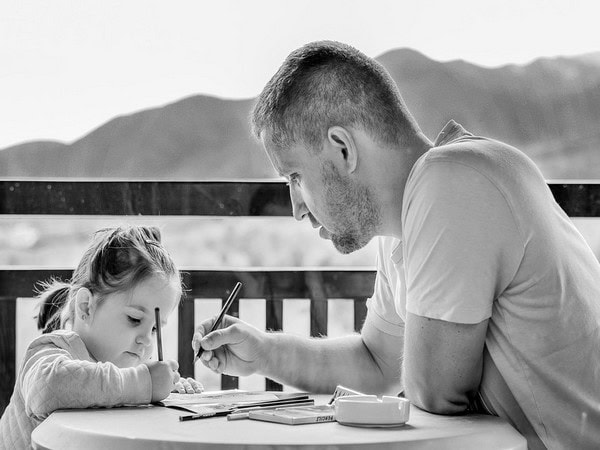Washington D.C. [USA] Nov 28 (ANI): Turns out, parents’ way of talking affects the infants’ command over their language.
Speaking directly to the baby with a style of speech known as ‘parentese’ can improve the infant’s language development. Parentese is the way of talking slowly and clearly, often with exaggerated vowels and intonation.
A new study conducted at the University of Washington showed that parents who learn how and why to speak parentese can have a direct impact on their children’s vocabulary.
Infants who are exposed to more parentese at home, have larger vocabularies as toddlers, said Patricia Kuhl, professor of speech and hearing sciences and co-director of I-LABS.
In the new study, published online in Developmental Science, researchers used audio recordings of families’ typical weekends. Parents were then assigned to the ‘coaching’ or ‘control’ groups.
Those in the control group were recorded, while those in the coaching group were not only recorded, but they also participated in individual parent coaching sessions. During those sessions, they received language-interaction tips and discussed their recordings with the coaches.
The babies of the parents who received coaching during the study were reported more verbal by 14 months of age.
According to researchers, parentese is not only speaking directly to the child, but it also resonates with infants, and helps babies to tune in socially to their parents, and motivates them to talk back.
“Most parents know that the amount of language their child hears is important. What we shared with them through coaching is that how they talk to their baby may matter even more,” said Naja Ferjan Ramírez, lead author of the study. “We explained to them the research behind parentese, and made sure they were aware of the connection between their language input, and their speaking style in particular, and their baby’s language outcomes.”
The researchers concluded that the babies, between six and 14 months, of coached families, babbled, on average, in 43 percent, while control babies babbled in 30 percent of the recordings. [source_without_link]ANI[/source_without_link]

